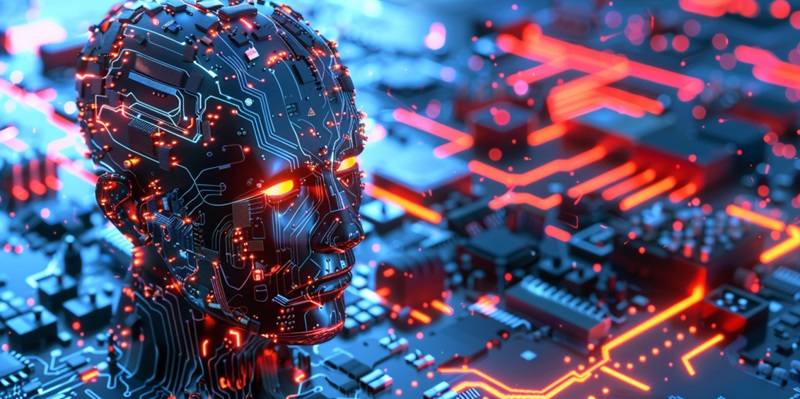In the ever-evolving technology landscape, the AI chip market has become a battleground for innovation and dominance. Advanced Micro Devices (AMD), long an underdog in this space, has upped the ante by introducing its latest artificial intelligence processors. These advancements were unveiled at the prominent Computex technology trade show in Taipei, catching the eye of industry insiders and investors alike. The flagship of this new suite, the MI325X accelerator, has particularly stirred the competition, signaling AMD’s readiness to challenge Nvidia’s hefty 80% control over the market.
The initiative is championed by AMD’s CEO Lisa Su, who emphasized the importance of continuous innovation in maintaining a competitive edge. The MI325X isn’t the only highlight; the announcement also included a peek at the MI350 series, promising a 35-fold increase in AI response efficiency over its predecessor, set for a 2025 release. The company is not stopping there. Plans for the MI400 series were hinted at, anticipating arrival in 2026 with a Next architecture, suggesting a relentless pursuit of technological advancement.
The Market’s Reaction
Within the dynamic realm of tech, AI chips have become hotly contested territory for tech giants. AMD has made a strategic play to disrupt the market with its cutting-edge AI processors, unveiled at Computex in Taipei. Catching the attention of tech aficionados and savvy investors, AMD’s pioneering MI325X accelerator exemplifies its intent to vie with Nvidia’s dominating 80% market share.
Under the leadership of CEO Lisa Su, with a focus on relentless innovation to stay competitive, AMD has boldly showcased the MI325X. Yet the intrigue doesn’t end there; a teaser of the MI350 series also emerged, boasting a monumental 35x leap in AI processing efficiency compared to former offerings, gearing up for a 2025 reveal. AMD is already casting its gaze farther, teasing the prospective MI400 series, targeting a 2026 launch with a ‘Next’ architecture, cementing AMD’s commitment to relentless tech progression and shaking up the AI chip industry further.

